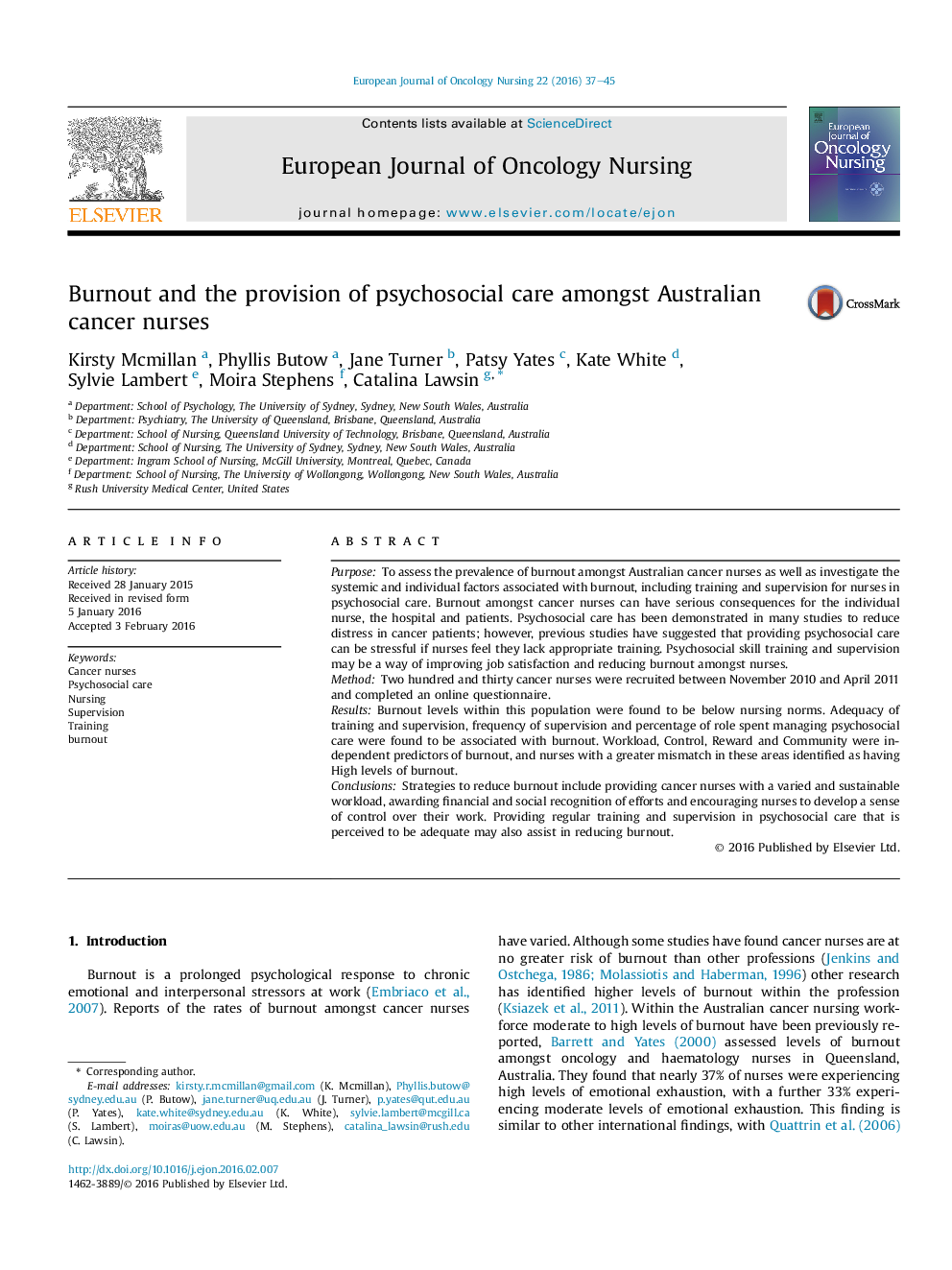| Article ID | Journal | Published Year | Pages | File Type |
|---|---|---|---|---|
| 2649390 | European Journal of Oncology Nursing | 2016 | 9 Pages |
•Nurses in this study reported inadequate training and supervision surrounding addressing psychosocial concerns amongst the patients they treat.•Burnout was highest amongst nurses who perceived their workload as heavy, that they had little control over their work, were inadequately rewarded and did not perceive their work as a supportive community.•Systemic policies to manage nurses' workload and also provide training and supervision in addressing psychosocial concerns may be effective strategies to reduce burnout.
PurposeTo assess the prevalence of burnout amongst Australian cancer nurses as well as investigate the systemic and individual factors associated with burnout, including training and supervision for nurses in psychosocial care. Burnout amongst cancer nurses can have serious consequences for the individual nurse, the hospital and patients. Psychosocial care has been demonstrated in many studies to reduce distress in cancer patients; however, previous studies have suggested that providing psychosocial care can be stressful if nurses feel they lack appropriate training. Psychosocial skill training and supervision may be a way of improving job satisfaction and reducing burnout amongst nurses.MethodTwo hundred and thirty cancer nurses were recruited between November 2010 and April 2011 and completed an online questionnaire.ResultsBurnout levels within this population were found to be below nursing norms. Adequacy of training and supervision, frequency of supervision and percentage of role spent managing psychosocial care were found to be associated with burnout. Workload, Control, Reward and Community were independent predictors of burnout, and nurses with a greater mismatch in these areas identified as having High levels of burnout.ConclusionsStrategies to reduce burnout include providing cancer nurses with a varied and sustainable workload, awarding financial and social recognition of efforts and encouraging nurses to develop a sense of control over their work. Providing regular training and supervision in psychosocial care that is perceived to be adequate may also assist in reducing burnout.
